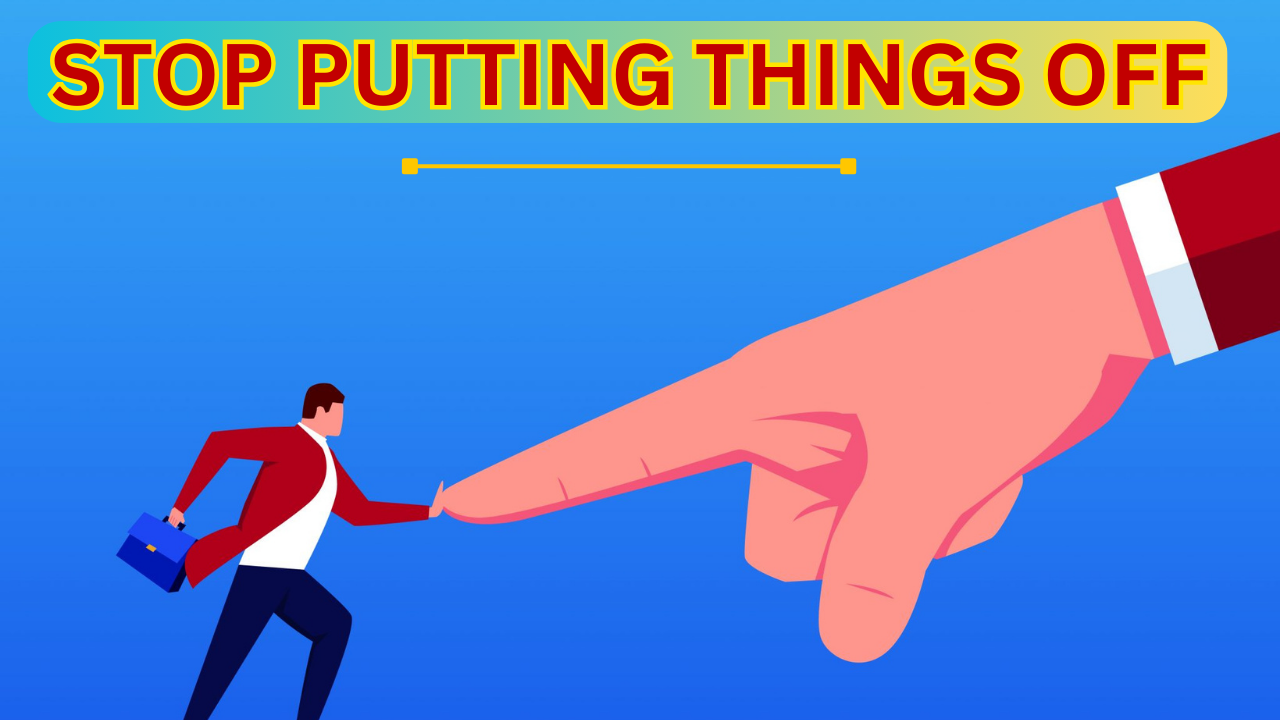Ever find yourself procrastinating, it is time to break the cycle. Start by setting small achievable goals, prioritize tasks, and create a schedule. Eliminate distractions and stay focused. Remember progress over perfection, reward yourself for completing tasks, and most importantly, just start. Take the first step towards productivity. Today, let’s crush those to-do lists and conquer procrastination. Whether it is a big project, a simple task, or something we have been meaning to start for a while, procrastination can be a real problem. In this article, we will see how you can take control and get things done, without stress.
Understand Why You Procrastinate:
Before you can prevent procrastinating, it is important to understand why you do it. People positioned matters for one-of-a-kind motives. Some might feel overwhelmed by the task at hand, while others would possibly fear failure. Sometimes, it is pretty much not being in the temper or locating something else more exciting to do.
When you capture yourself putting something off, take a moment to consider why. Are you fending off the assignment because it appears too difficult? Are you fearful of now not doing it flawlessly? Understanding the motive in the back of your procrastination will let you deal with it more efficiently.
Break Down Big Tasks:
One of the largest motives people procrastinate is due to the fact they sense being crushed by using the dimensions of a challenge. If something appears too big or complicated, it is easy to preserve placing it off. The trick is to break it down into smaller, greater possible steps.
For example, if you need to put in writing a report, do not think of it as one large task. Break it down into steps like researching, outlining, writing the introduction, and so on. This way, you can be aware of one small part at a time, which feels much less overwhelming and greater manageable.
Set Clear and Simple Goals:
Having clear dreams permits you to live on course. Instead of saying, “I’ll do this later,” set a selected time to work on the project. For example, inform yourself, “I’ll spend 30 minutes on this assignment after lunch.” This gives you a clear plan and makes it simpler to get started.
Make certain your goals are practical and possible. If you put desires that can be too huge or too tough, you are more likely to place matters off. Start with something simple and construct from there.
Eliminate Distractions:
Distractions are one of the essential reasons people procrastinate. Whether it is your phone, social media, or TV, distractions can without problems take your attention away from what you want to do. To prevent procrastinating, it is important to minimize those distractions.
Try placing your phone on silent or out of reach while you figure. If you are difficulty distracted by the noise, discover a quiet place to focus. The fewer distractions you have, the less complicated it will be to live on a project.
Use the Two-Minute Rule:
The two-minute rule is an easy but effective manner to prevent procrastinating. The idea is that if something takes much less than two minutes to do, you should do it right away. This helps you cope with small tasks right now, rather than letting them pile up.
For example, in case you need to send a brief e-mail or put away your laundry, do it now rather than later. This not simplest clears small tasks off your list but also offers you a sense of achievement that could encourage you to address bigger duties.
Reward Yourself:
Rewards can be an excellent motivator to get things executed. When you complete a mission, no matter how small, reward yourself with something you enjoy. This might be a short damage, a snack, or a couple of minutes of your favorite pastime.
Knowing that you have a reward looking forward to you can make it easier to start and end tasks. Just make sure the praise does not become a distraction, set a timer for your break, or restrict some time on social media.
Be Kind to Yourself:
It is critical to remember that everyone procrastinates now and again, and that is okay to be type to yourself and not beat yourself up in case you find yourself setting matters off. The key is to apprehend it and take steps to get back on target.
If you slip up and procrastinate, do not submit. Just refocus and strive again. The more you exercise these strategies, the easier it becomes to stop procrastinating and get things done.
Conclusion:
Procrastination is a habit that may be tough to break, but with the right strategies, you can overcome it. By knowing why you procrastinate, breaking responsibilities down into smaller steps, placing clean desires, and casting off distractions, you may take manage of some time and get things executed. Remember to praise yourself for your efforts and be an affected person yourself as you figure out how to build new habits. With exercise, you will find it less difficult to prevent putting matters off and start developing the matters that remember most.
